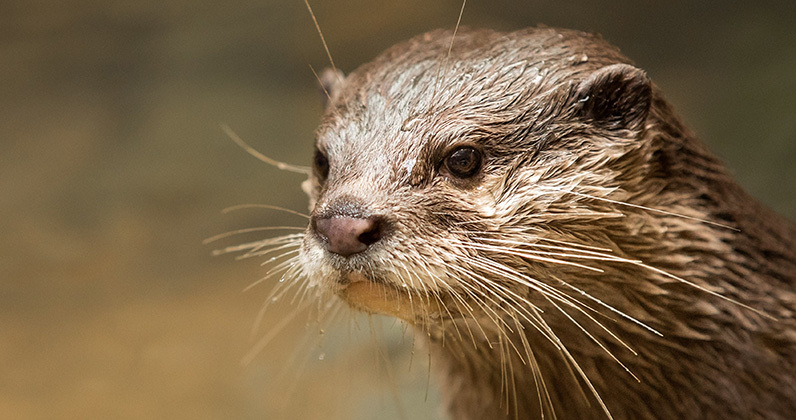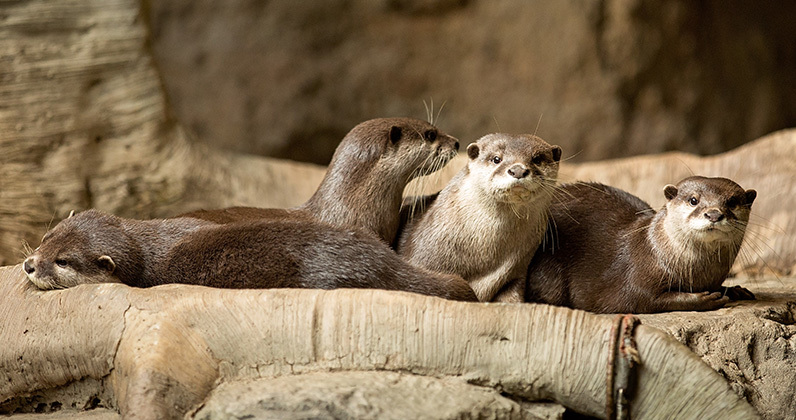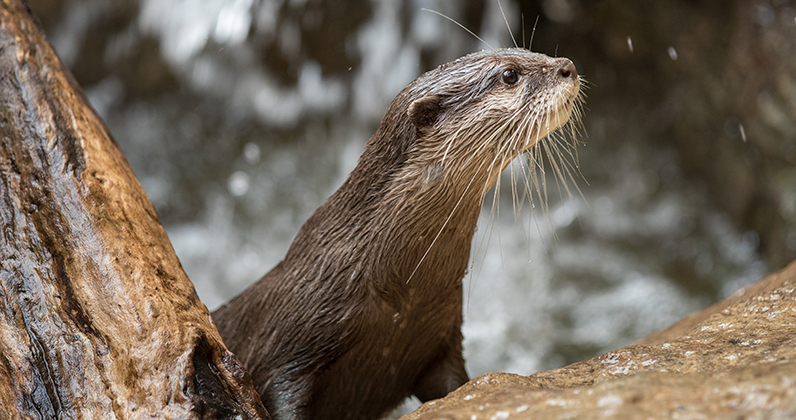Asian small-clawed otters: Five things you didn't know
Posted on Tuesday, January 16th, 2018
On September 24, 2017, Cleveland Metroparks Zoo welcomed a litter of three male otter pups in The RainForest. Video of the pups quickly made its way around the internet and everyone wanted a glimpse of these babies!
Keep reading below for five things you didn’t know about Asian small-clawed otters.

1) They're the smallest otter
Out of the 13 species of otter, Asian-small clawed otters are the smallest. These otters weigh up to 13 pounds with a body length of around 2 feet. Compare that to the largest otter species, the appropriately named giant otter, which can weigh up to 75 pounds with a body length of 6 feet!
2) Both parents raise offspring
Asian-small clawed otters are monogamous, meaning they only have one mate during a breeding season or throughout the breeding life of a pair. The male will help with raising pups and will bring food for both the mother and the young. A breeding pair of otters may have up to two litters a year with one to six pups in each litter. Cleveland Metroparks Zoo’s most recent litter from late 2017 consisted of three boys named Adhi, Bejo and Cipto.

3) They have a language!
Can you speak otter? Probably not. Asian small-clawed otters have a vocabulary of at least 12 or more calls in addition to basic instinctive cries. Visit The RainForest at Cleveland Metroparks Zoo and you’re likely to find the otters being very vocal!
4) They can't swim when born
Asian small-clawed otters are excellent swimmers, but did you know they aren’t born ready to swim? Otter pups are actually born with their eyes still closed and it can take up to nine weeks before they’re big and strong enough to swim. Animal Care staff at the Zoo slowly introduced running water and shallow pools before the pups were ready to go out into their public habitat with large pools. They’re swimming more and more each day!
5) They're amphibious
They’re not amphibians, but Asian small-clawed otters are amphibious (meaning they can live on land and in water). Asian small-clawed otters are found in rivers, creeks, estuaries (where the tide meets the stream) and coastal waters. They spend much of their time playing in the water and will fall to water when danger approaches.



